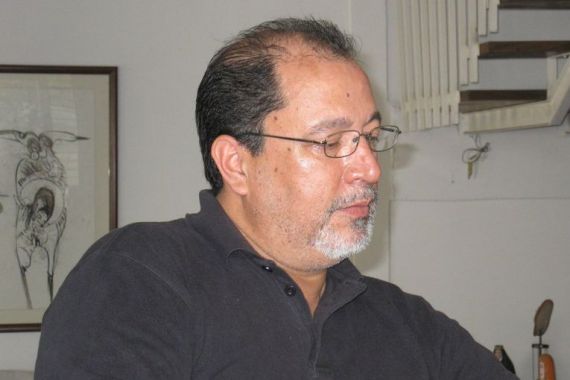
Julio Bolívar
Crear en Salamanca se complace en publicar estos poemas del venezolano Julio C. Bolívar, escritor, editor independiente, profesor en Literatura (UPEL), ex- director del Museo de Barquisimeto, especializado en Literatura y Estudios de Maestría en Literatura Hispanoamericana Contemporánea Universidad Simón Bolívar. Estudios de postgrado en estudios Literarios Universidad Central de Venezuela. Miembro fundador de la Fundación Aurín y del fondo editorial Maltiempo editores, Barquisimeto. Asesor editorial. Trabajó como director editorial de la Fundación Biblioteca Ayacucho y de Ediciones IESA. Fundador de Sellos de Fuego Editores. Asesor y editor independiente de Libros de El Nacional, especialmente en gastronomía, narrativa, historia y filosofía. Colaborador de El Papel Literario del diario El Nacional. Ha publicado Catálogo (poemas, 1998); Corazones de paso (poemas, 2012). Con otros autores aparece en la Guía del promotor de la lectura (Ensayos, 1994; Lectura y censura en la Literatura para niños y jóvenes (ensayo breve, 1995); Desarrollo cultural y gestión en centros históricos (Editor: Fernando Carrión, UNESCO/FLACSO. Ecuador, 2000); Lo Bello y lo útil de Lara (ensayos, 2005). Premio Bienal “José Rosa Acosta 2016 con el libro Tocar la puerta.
“He aquí seis poemas de Julio C. Bolívar, traducidos al inglés por César Panza. Julio Bolívar es un poeta venezolano cuya poesía vuela alojada en una aparente sencillez. Leer poesía es un asunto misterioso y placentero. La poesía se diferencia de todos los demás gustos porque ella dicta el modo de querer, de anhelar, de necesitar o de vencer el tiempo. Es misterioso porque se intuye lo que no se comprende y se compara con los sueños lo que no se retiene.” (José Pulido).
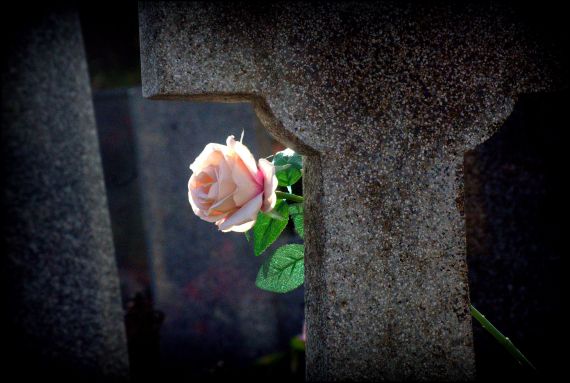
Foto de José Amador Martín
LOS PARIENTES
Para Gabriel Saldivia
No hay distancias entre los vivos y los muertos
Así como los que dicen que viven lloran a los idos
los que ya se fueron los recuerdan.
A veces, en los parques no encontramos espacio para sentarnos
ellos, descansan y toman el sol
borran inútilmente la palidez del encierro en el cielo
o recuperan su piel tostada por el fuego del infierno
Los ausentes tienen todo el tiempo del mundo
sin embargo, viajan poco
Con la calma debida, pasan el día en los cafés de la ciudad
llenan las salas de cine
los festivales de teatro cuentan con ellos
cómo un público culto y sobre todo fiel
Ahora tienen el tiempo que nunca tuvieron.
Otros estudian y se vuelven sabios
lamentan de cierta indiferencia con los amigos
saludan curiosamente nadie les devuelve el saludo
Hablan solo entre ellos, sus amigos los han olvidado,
de eso platican en sus tardes infinitas.
Así como fueron, así siguen siendo
De noche mientras dormimos mueven los muebles
preparan las ollas para sus platos favoritos
entran en nuestros sueños
o en nuestras pesadillas y nos despiertan para no sentirse tan solos.
Ese murmullo que escuchamos los domingos
cuando la ciudad está más tranquila,
son sus comentarios sobre nuestra frialdad ante ellos.
Se contentan con decir que la ciudad atormenta a cualquiera
por eso es que no lo tomamos en cuenta, ni siquiera los miramos.
Sin embargo, sabemos, allí están
a nuestro lado, muchas veces
los llamamos y sentimos su presencia en nuestras oraciones ocasionales.
________________________________________________
THE RELATIVES
To Gabriel Saldivia
There’s no distance between the living and the dead.
Just like those who say they’re still alive and cry for the gone ones
those who are already gone, remember them.
Sometimes, in the parks we do not find space to sit
so them, they rest and take the sun
vainly erasing the paleness of the lockdown in heaven
or regaining their toasted skin by the flames of the hell.
The absent has all the time of the world
nevertheless, they don’t travel much
With all due calm, they spent the day in cafés of the city
they fill cinemas, theater festivals count on them
as a cultivated and, and above all, loyal public.
Right now they have all the time they never had.
Some others study and become wise.
they grieve upon some indifference by friends
when greeting, curiously, nobody regards back
They speak only among themselves, their friends have forgotten them,
that’s what they talk about in their endless afternoons.
As they were, so they remain
In the evenings while we sleep they move around the furniture
they prepare the pots for their favorite dishes
they enter in our dreams
or in our nightmares and they awake us to not feel so alone.
This murmurs we listen on Sundays
when the city is calmer
are their comments on our coldness towards them.
They please themselves by saying the city torments anyone,
that’s why we don’t consider them, not even looking at them.
However, we know, there they are
by our side, many times
We call them, grazing their presence in our occasional prayers.
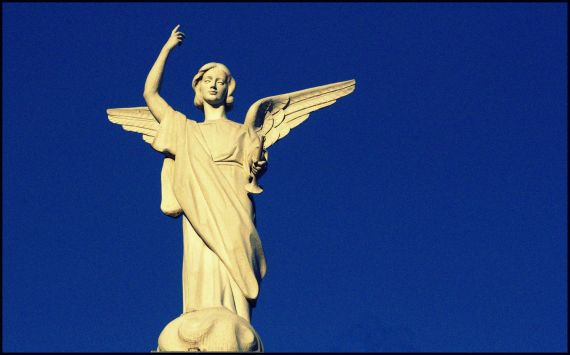
Foto de José Amador Martín
ALMAS SUSPENDIDAS
Los queridos difuntos
deudos y finados que quisiste
viven sentados en la esquina de la cama
Cuentan sin parar
su viaje imposible
Dicen que no pueden vivir bajo tierra
que no pueden dormir en paz
Lentamente
se inclinan sobre nuestro pecho
para oír esta canción
que no deja de sonar
Que los encadena
a los vivos
demorando su viaje.
_________________________________________________
SUSPENDED SOULS
The dear deceased
bereaved and defunct that you loved
they live sitting in the corner of the bed
They count ceaseless
their impossible journey
They say they can’t live underground
And cannot sleep in peace
Gently
They lean over our chest
to hear this song
which doesn’t stop beating
Bonding them
with the living
delaying their trip.
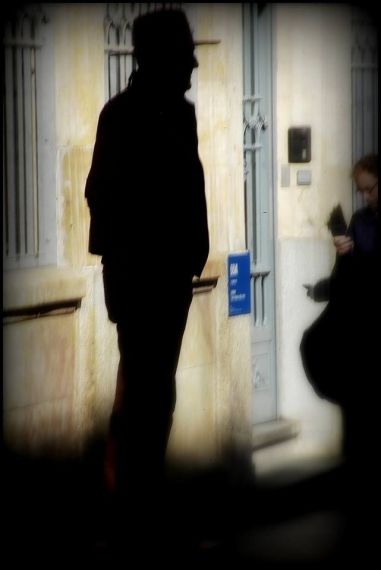
Foto de José Amador Martín
CAFÉ SIN PASADO
En el pasado siempre somos felices
Con llanto y todo siempre lo recordamos con nostalgia por la felicidad
que nos dio
No sé si decir, éramos felices
Como siempre vuelve y es deseo presente
Por eso digo somos
Por eso digo también que lo sabemos
Al morir siempre llega una imagen desde allá, fondo de la
memoria que nos da un helado, una radionovela
una carta, juguetes que nos harán felices nuevamente ese instante al que no podemos regresar
Las conversaciones llevan el pasado en la lengua
no hay café sin pasado
ni torta de naranja sin domingo
casi no hay nada sin pasado
Todos los días regresa, en forma de madre, o en el silbido de mi padre
y el pan y la leche
Allí construimos y edificamos eso que llamamos nostalgia
improbable y movible
sujeto de los sueños y de las utopías.
Mejor, no hay nada sin pasado, solo presente
Lo demás es el presentimiento
las cartas echadas en el tapete de la fatalidad
y las preguntas sin respuestas
Solo la vaguedad y la posibilidad de lo real
se asoma en ese juego de malabares y azar
ese tarot atrayente que guardas en la mesita de noche.
Futuro oculto como todo futuro
El pasado en cambio es certeza
materia para respirar todos los días
una almohada de reposo y de paciencia.
________________________________________________________
COFFEE WITHOUT A PAST
In the past we are always merry
In weep and all we always remember it with nostalgia for the happiness
Delivered to us
As if to say, I don’t know, we were happy
It comes back, as usual, and is current desire
So I say, in present, we are
So I also say, we know it
When dying, an image always comes from there, the bottom of the
memory brought by an ice cream, a radionovela
a letter, toys that will make us happy again
that instant to which we cannot go back
Those conversations carry the past on the tongue
there is no coffee without a past
no orange cake without Sunday
there is almost nothing without a past
It returns every day, in the form of a mother, or in my father’s whistle
and the bread and the milk
There we build and build what we call nostalgia
improbable and changeable
subject of the dreams and the utopias.
Better, there is nothing without past, only present
The rest is the foreboding
the cards thrown on the rug of doom
and the unanswered questions
Only the vagueness and the possibility of the actually
glimpses into that game of chance and juggling
that attractive tarot you keep on the night table.
Concealed future like all future
The past, instead, is certainty
matter to breathe in every day
a pillow of repose and patience.
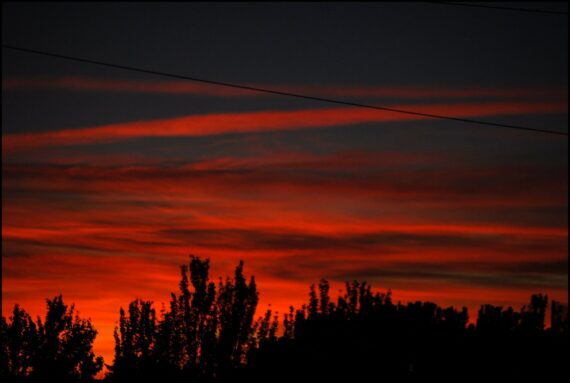
Foto de José Amador Martín
VARIACIONES SOBRE ENERO
I
Otro mes nació dentro del año
y sucedió el nacimiento del alma
despertó una luna y otro sol
Las piedras solas en la tierra
sin la fuerza de la sangre
y la otra piedra tallada
en el dolor del error y la ilusión
No había nada, solo la respiración lenta del día
solo el aire envenenado
del pozo oscuro del poder
anidado en la piedra
II
Un universo pensado
en el corazón de la niebla
sucedió un día
Había días despiertos
y días dormidos
Oscuras rocas, tierra y árboles
Un cielo diario de vida y muerte
de piedras talladas
para dormir sin el aire del cielo
III
Llegó otro mes y otro poblador.
y sucedió después el alma
con sus cuentas y sus signos para poder leer de nuevo
piedras acompañadas de las manos
2019, Los Chaguaramos, enero. CCS
_______________________________________________________
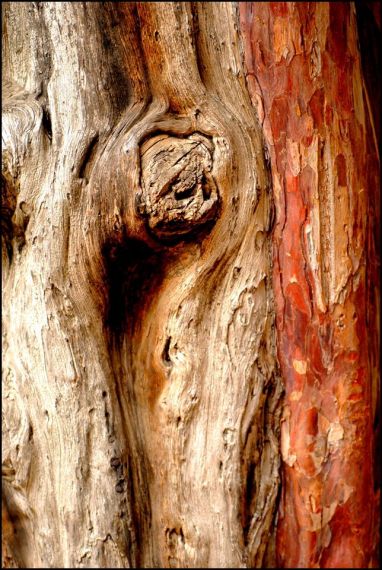
Foto de José Amador Martín
VARIATIONS ON JANUARY
I
Another month was born inside the year
withal it happened the birth of the soul
which woke up a moon and another sun
The lone stones in the ground
without the force of the blood
and the other carved stone
in the ache of error and illusion
There was nothing, but the slow breathing of the day
but the poisoned air
from the obscure well of power
nested in the stone.
II
It happened one day,
a thought-out universe
in the core of the mist
There were awaken days
and sleepy days
Dark rocks, soil and trees
A daily heaven of life and death
of carved stones
to sleep without the air of heaven
III
Another month has arrived
and some other settler
and the soul happened afterward
with his beards and symbols
so to be able to read again
stones coupled with hands
2019, Los Chaguaramos, January. CCS
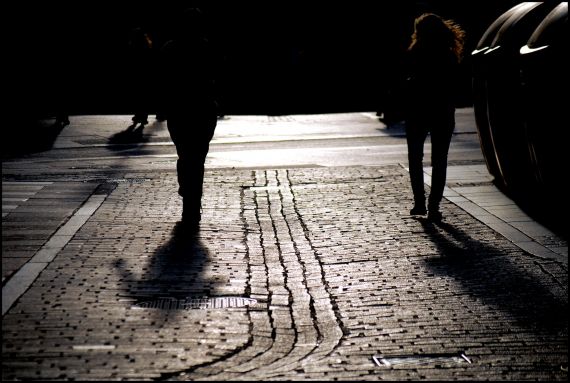
Foto de José Amador Martín
P/A
…
Nada te turbe,
Nada te espante,
Todo se pasa,
Dios no se muda,
La paciencia todo lo alcanza;
Quien a Dios tiene nada le falta: solo Dios basta.
Santa Teresa de Jesús
Un día, una noche, dos noches
que se extienden dentro de un ferrocarril sin estaciones
la verdad nos posee y nos somete
nos va haciendo suyos y ajenos a la vez
con lazos invisibles, espejos de lo mismo
cenizas esperando la lluvia
Bosques ocultos escuchan a Dios
nos sospechamos en el aire del invierno ofrecido
fuertes y frágiles cuerpos que pueden desaparecer
en el instante de ese fuego balanceado en los hilos antiguos
trama limpia que nos acoge,
necesitados que se desgarran y reparan sus heridas
De cuando en cuando
cerramos los ojos con el corazón
como un regreso al agua del sediento
que teme el soplo de la mentira
De lo que se tiene nada más y nada menos
aquellos placeres imaginados desde el primer día
ofrecidos en mi paso por tu lado.
11.4.19/ 23.4-2019 Caracas.
A/P
…
Let nothing disturb you.
Let nothing make you afraid.
All things are passing.
God alone never changes.
Patience gains all things.
If you have God you will want for nothing.
God alone suffices.
— Saint Teresa of Jesus
One day, one night, two nights
that expand into a railroad with no stations
truth possesses and subdues us
at the same time, it makes us his own and out of others
with invisible knots and ties, mirrors of the same
ashes waiting for the rain
Unseen forests listen to God
we surmise ourselves in the offered winter air
strong and fragile bodies that can vanish
in the instant of that flame balanced on the ancient threads
of a clean weft that welcomes us,
needing a tear down and mending on our wounds
From time to time
we close our eyes with our hearts
like the coming back to the water of the thirsty
who fears the blow of untruth
Of what you hold, nothing more, nothing less
those pleasures imagined since the first day
offered in my passage by your side.
4-11/23-2019, Caracas.

Foto de José Amador Martín
NOCTURNO EN EL HOSPITAL
A César Panza
Lenta, en gris
con tormenta adentro
llega la noche
con luna en Cáncer y
Marte en las mareas
mi sangre
sube hacia el corazón
en la suave y eterna vigilia del insomnio
Un pez ebrio nada en el vino
cabalga sobre los cristales
del accidente escrito
del fin de los días
en la tierra y en el cielo deseado
Ya no habrá más albas
ni cantos de gallos
solo, conmigo y las manos torpes
Las tinieblas torcidas de la postración
y la silla de ruedas.
_________________________________________________
NOCTURNE IN THE HOSPITAL
To César Panza
Here comes the night
slowly, in grey
by a storm within
rising moon in Cancer
and Mars at the tides
my blood goes
up to the heart
of the smooth and eternal
vigil of insomnia
A drunken fish swims in the wine
it rides over the crystals
of the written-wreck
from the end of the days
both in desired heaven and earth
There will be no more dawns
nor cockerels’ crowing
all alone, with me and the clumsy hands
The awry shades of prostration
and the wheel chair.
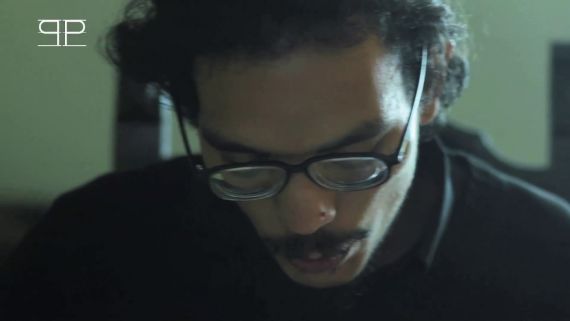
César Panza
César Panza. Valencia, Venezuela, 1987. Licenciado en Matemáticas por la Universidad de Carabobo (UC), estudiante de un Programa de Matemáticas Aplicadas por la misma casa de estudio donde también ejerce actividades docentes y de investigación. Poeta, editor y traductor. Cursó estudios de Filosofía en la Universidad Central de Venezuela (UCV). Ha traducido poemas de Aimé Césaire, Jacques Roumain, Eugène Guillevic, Aloysius Bertrand, Kenneth Rexroth, Wallace Stevens, Keorapetse Kgositsile, Wang Ping, Langston Hughes, Amiri Baraka, Charles Bernstein, Arthur Sze, George Oppen y Michel Butor para publicaciones web. Tradujo del inglés Canciones 1962-1970, de Bob Dylan (2017). Su primer libro Mercancías (2018). Miembro del Comité de Redacción de la revista Poesía de la Universidad de Carabobo.

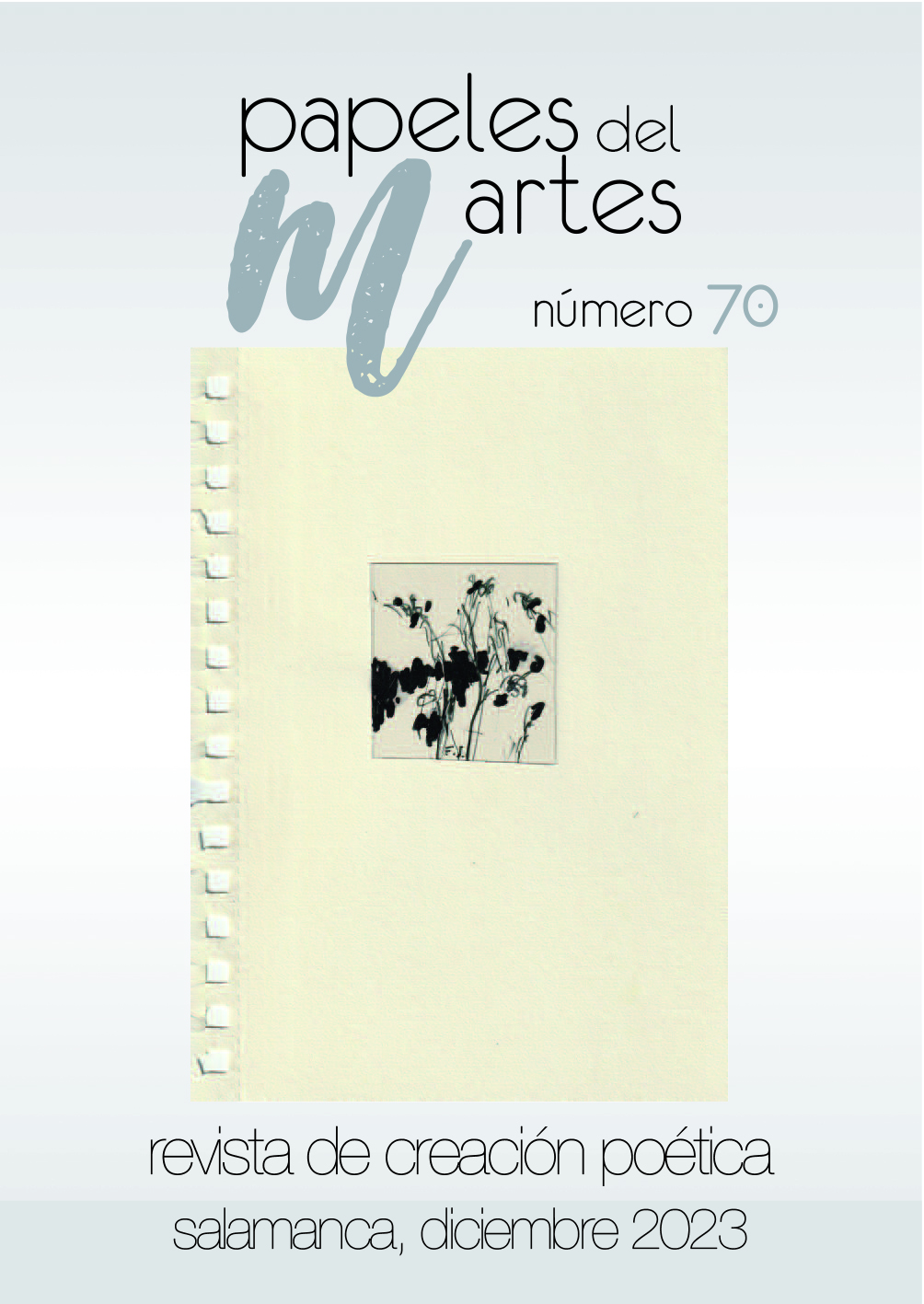
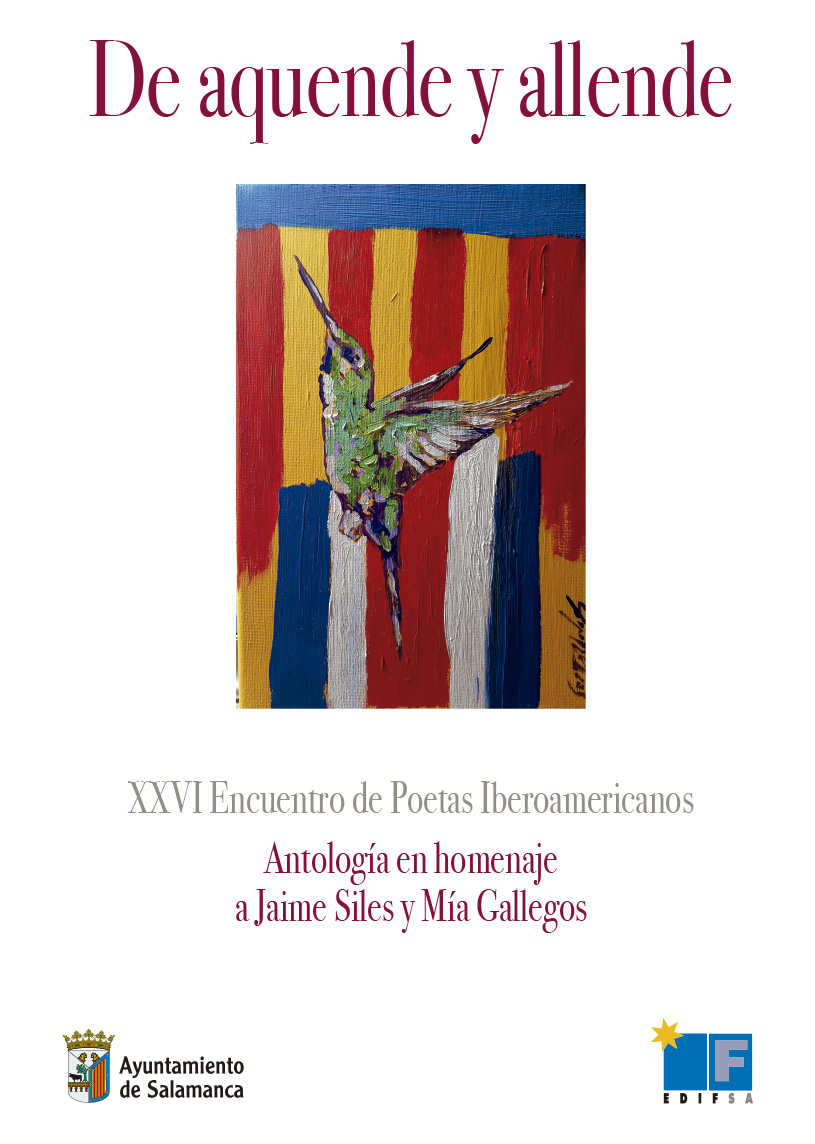
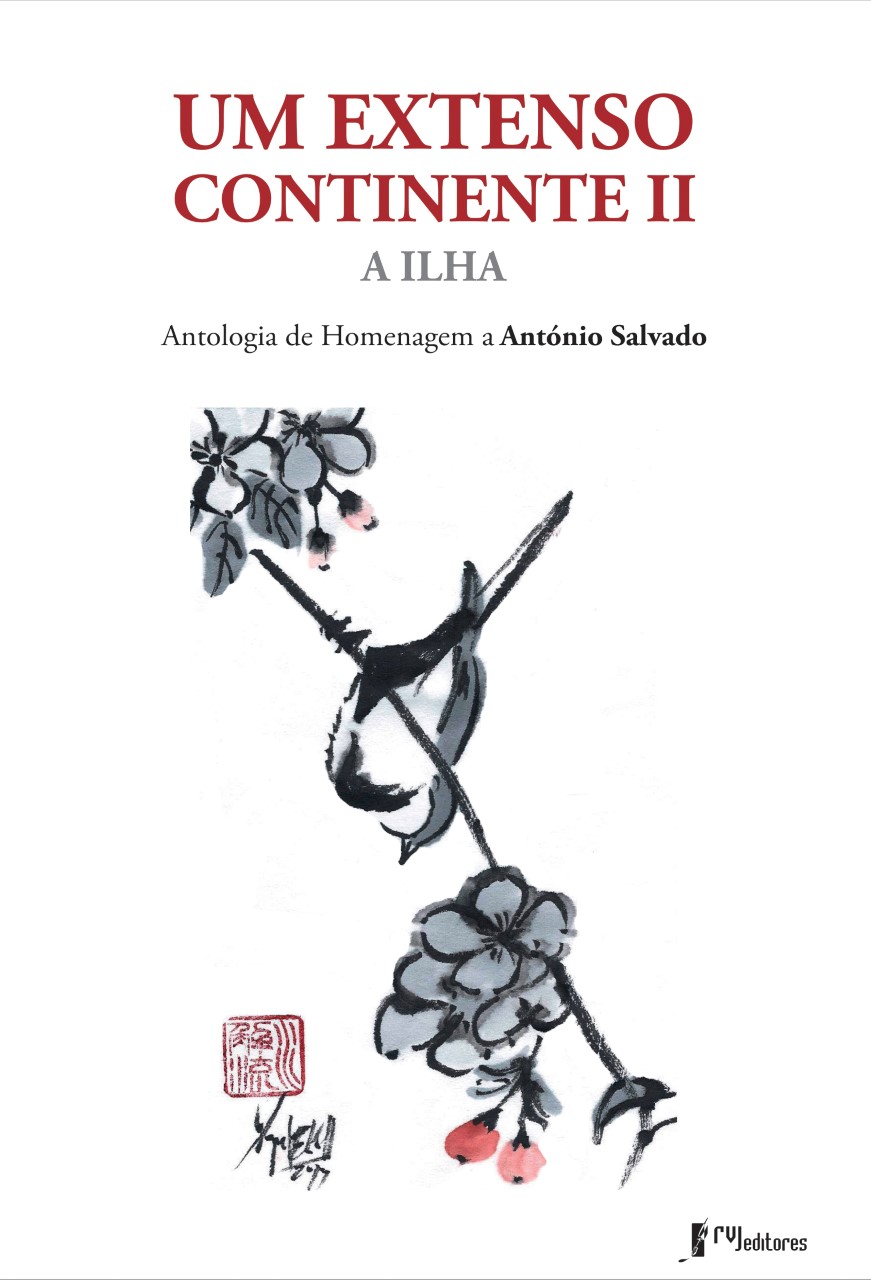
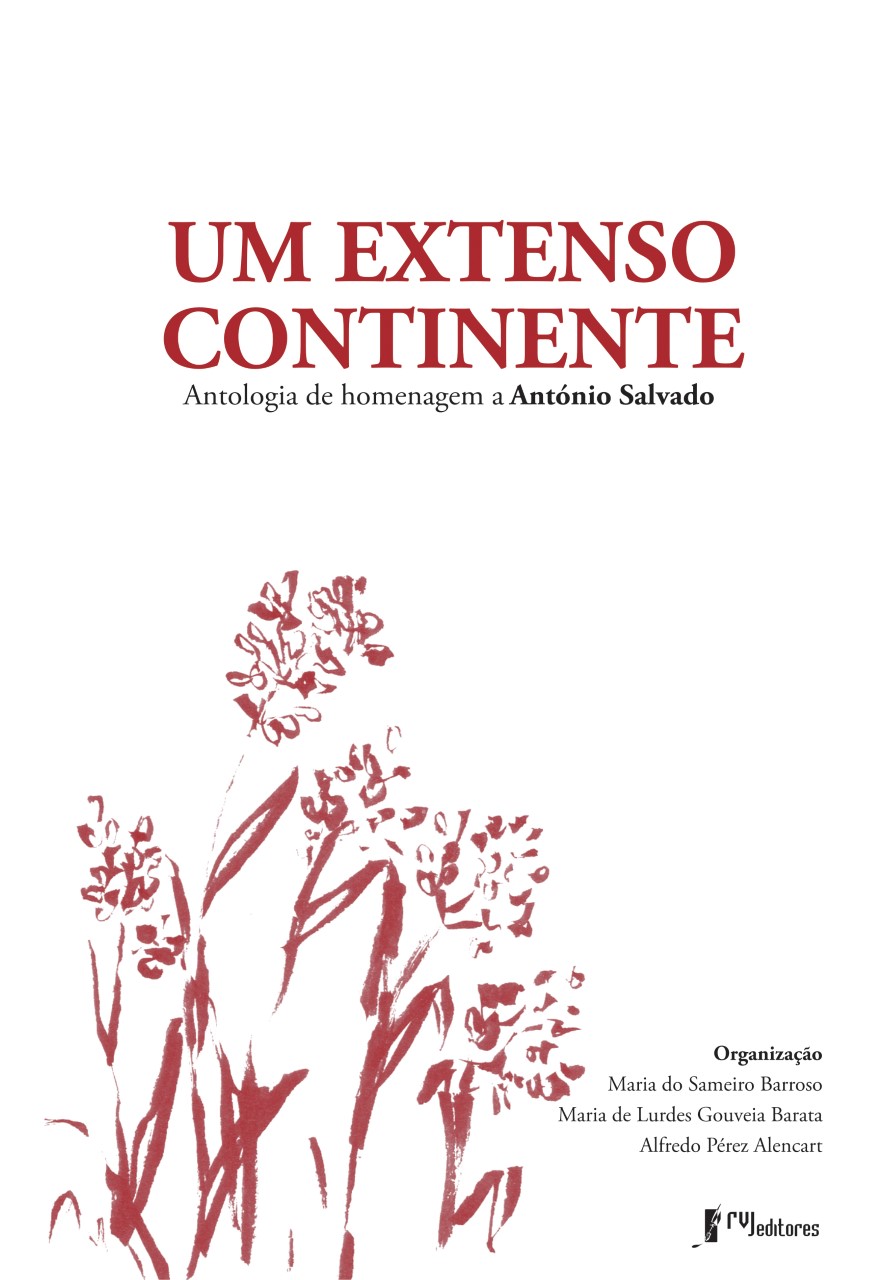
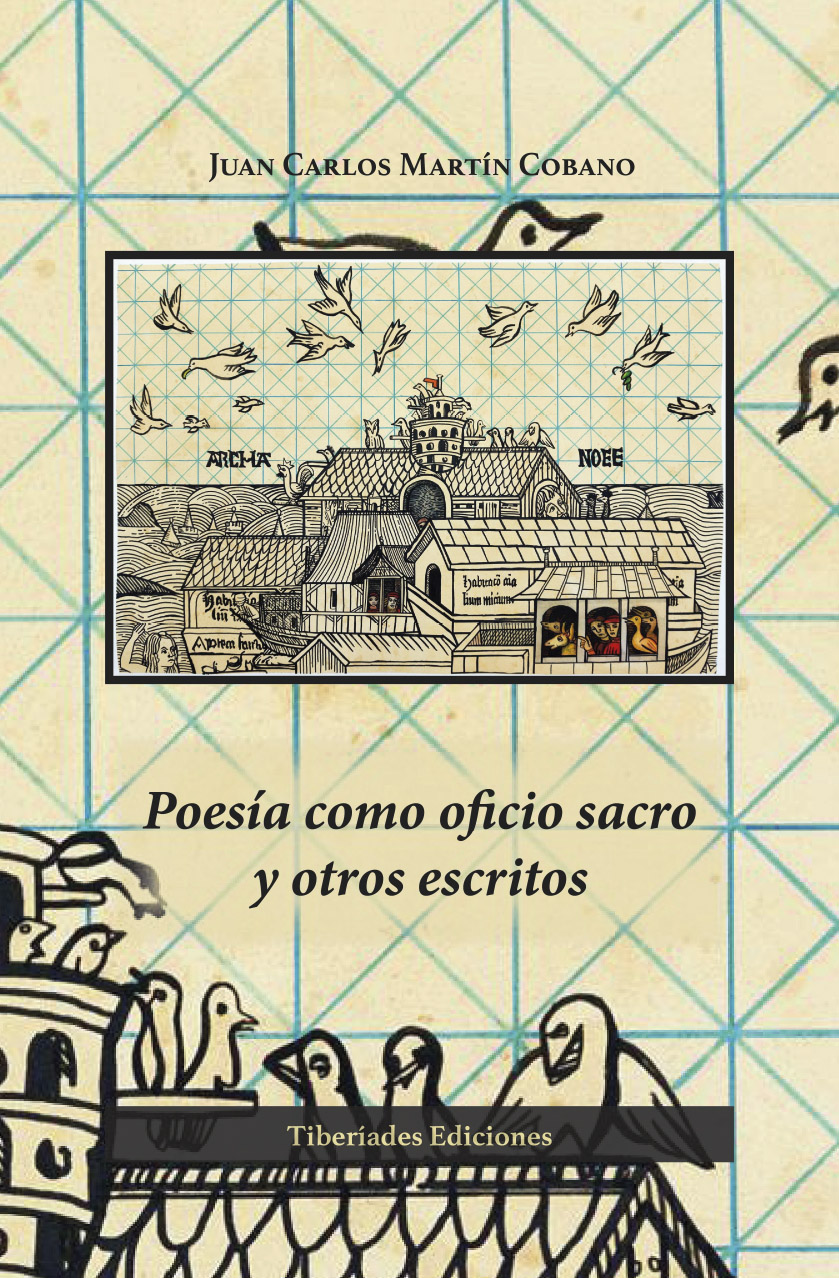
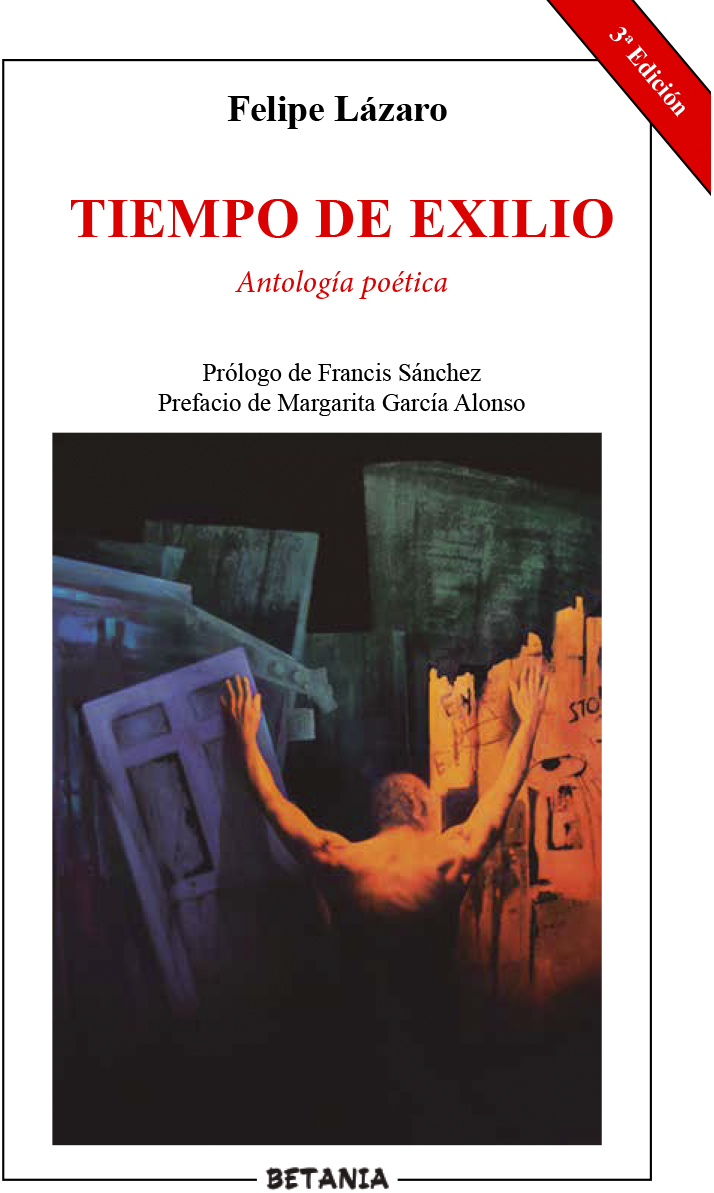
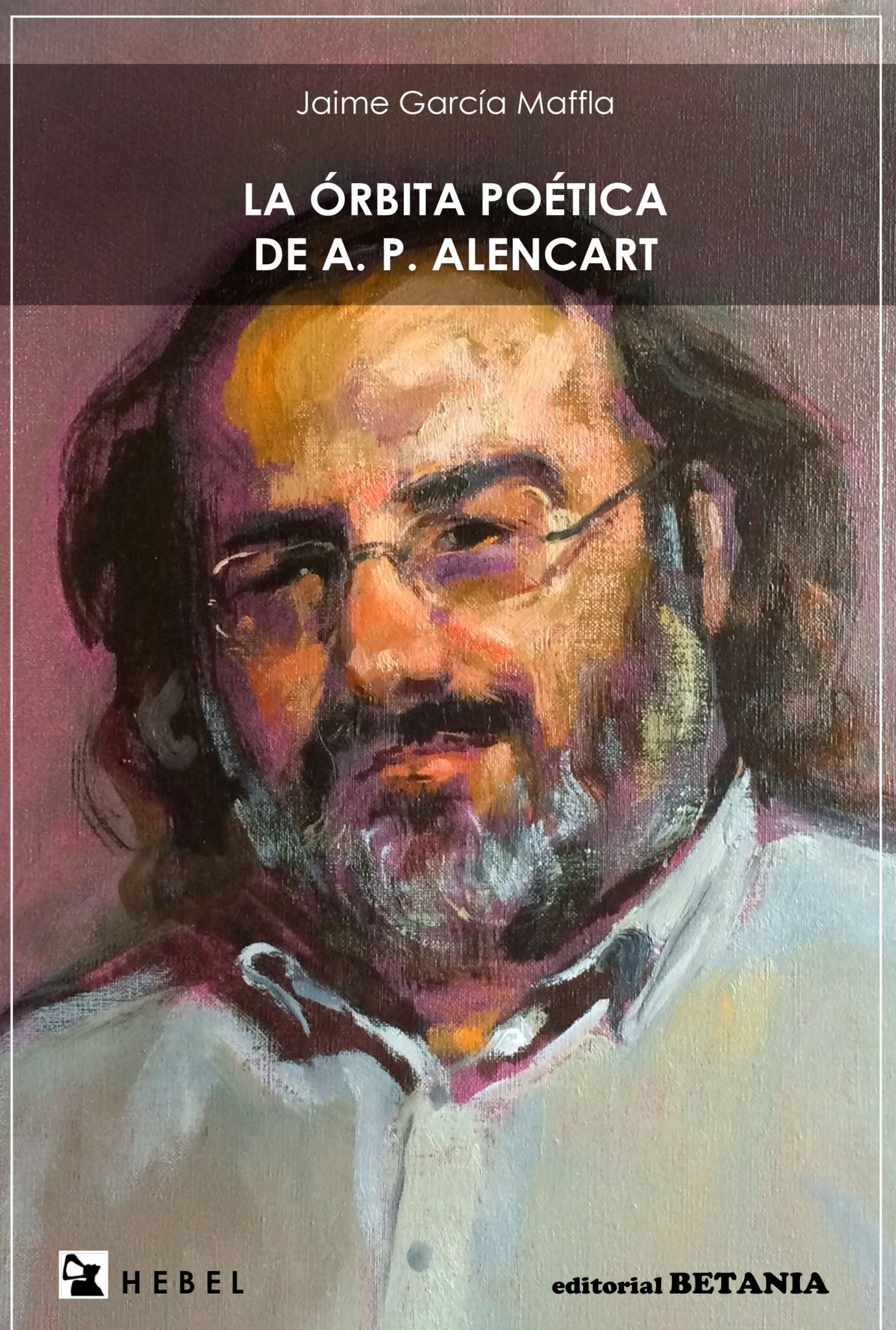

Deja un comentario
Lo siento, debes estar conectado para publicar un comentario.